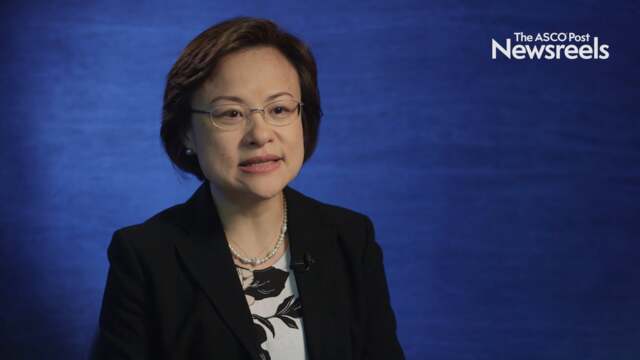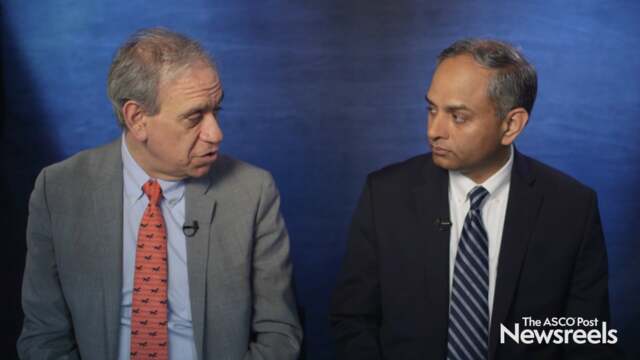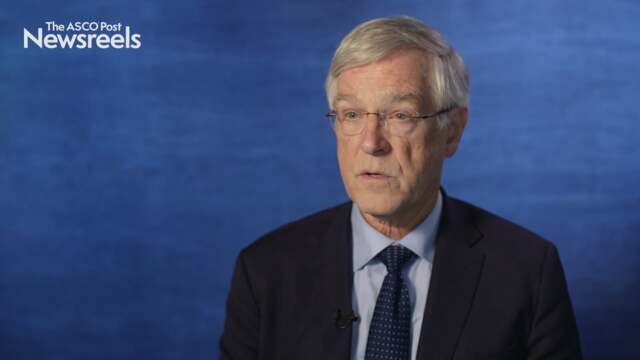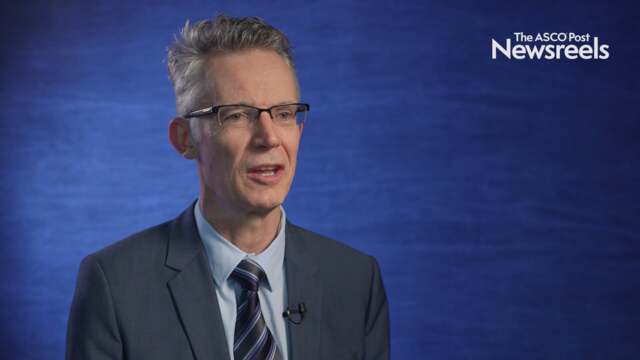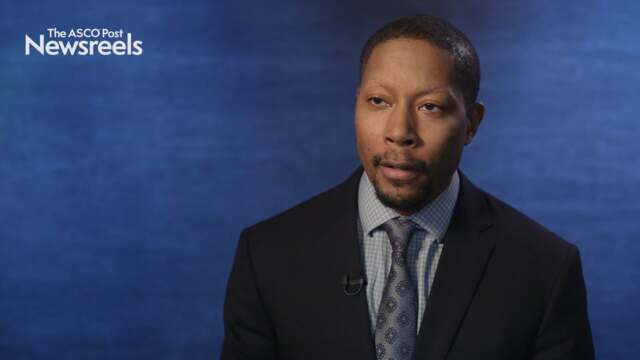Michael Unterhalt, MD, on Mantle Cell Lymphoma: Long-Term Follow-up Results
2017 ASH Annual Meeting
Michael Unterhalt, MD, of the University Hospital Grosshadern, discusses study findings on rituximab maintenance after first-line immunochemotherapy among older patients who are not candidates for autologous stem cell transplantation (Abstract 153).
Jia Ruan, MD, of NewYork-Presbyterian/Weill Cornell Medical Center, discusses a 5-year follow-up analysis that showed lenalidomide and rituximab as initial treatment achieved a high rate of complete responses and MRD negativity with durable remissions beyond 4 years (Abstract 154).
Andrew D. Zelenetz, MD, PhD, of Memorial Sloan Kettering Cancer Center, and Sattva S. Neelapu, MD, of The University of Texas MD Anderson Cancer Center, discuss long-term study findings on axicabtagene ciloleucel in patients with refractory aggressive non-Hodgkin lymphoma (Abstract 578).
Joseph M. Connors, MD, of the British Columbia Cancer Agency, discusses study findings on a new front-line option: brentuximab vedotin plus doxorubicin, vinblastine, and dacarbazine in patients with previously untreated stage III or IV Hodgkin lymphoma (Abstract 6).
John F. Seymour, MBBS, PhD, of the Peter MacCallum Cancer Centre, discusses an interim analysis of venetoclax plus rituximab vs bendamustine plus rituximab in patients with relapsed/refractory chronic lymphocytic leukemia (Abstract LBA-2).
Tycel J. Phillips, MD, of the University of Michigan Medical School, discusses the findings of the largest retrospective study to date of patients with intravascular diffuse large B-cell lymphoma, a disease with a poor outcome, partly due to the difficulty in diagnosing it early (Abstract 377).
